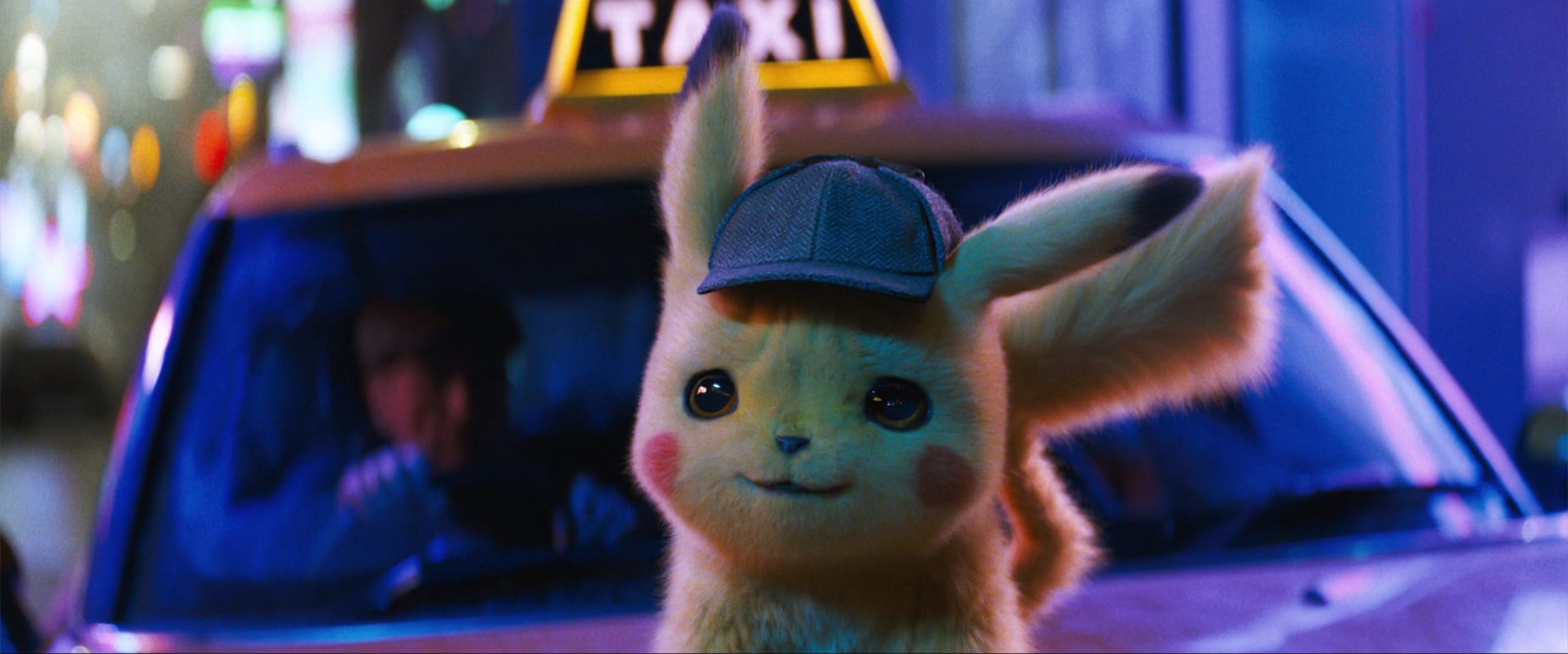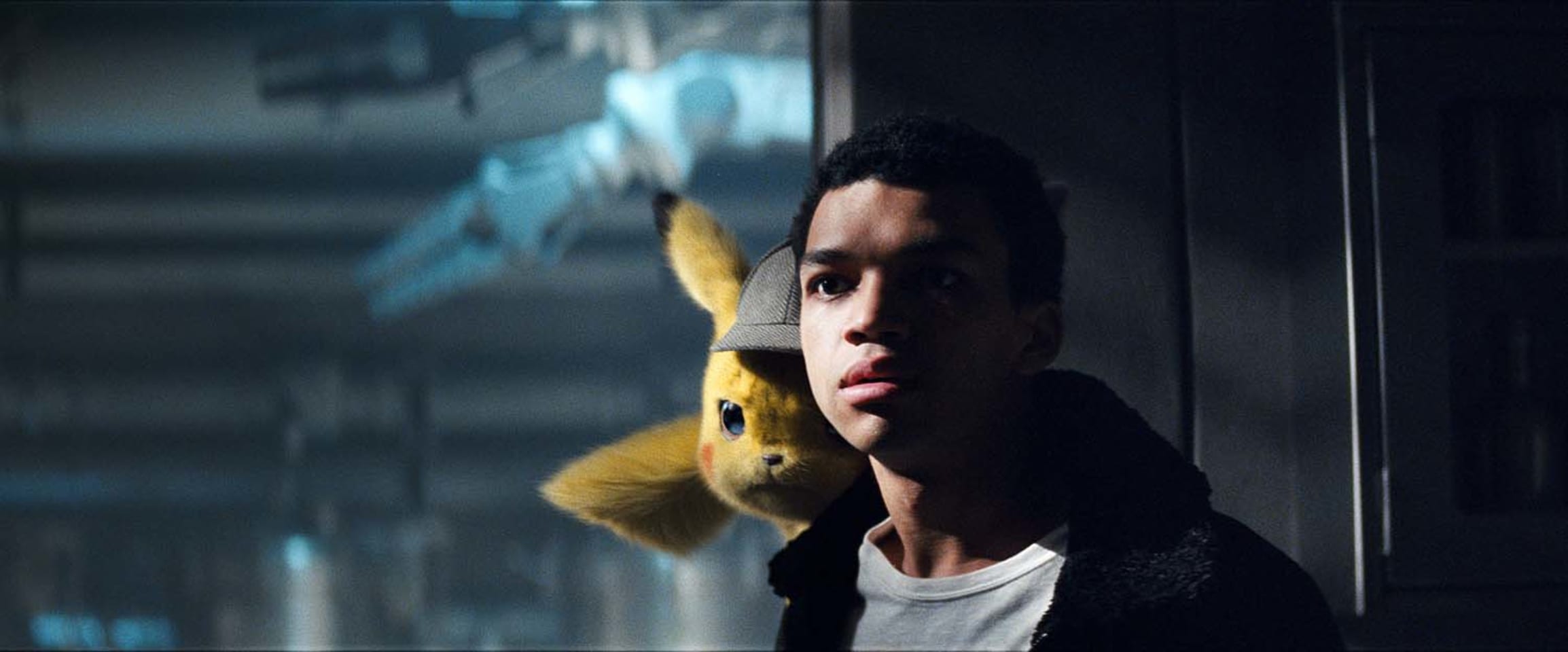How do you take a world that has a rich mythology and plethora of stories to be told but that has only lived in app or video game form, and turn it into an entertaining, adorable, and heartwarming film for all ages? That’s what Detective Pikachu director Rob Letterman had to figure out when signing on to take on the beloved Nintendo franchise of Pokémon and all the characters that inhabit its many worlds. Not only that, but contrary to prior adventure-fantasy films, instead of going full green screen and CGI, Letterman decided to use actual film as much as possible, which, when your co-lead is a fictional animal-like creature with powerful electrical abilities, can prove to be a bit challenging.
I recently spoke with Letterman to discuss creating the Pokémon world of Detective Pikachu, what films inspired certain sequences, and creating a diverse universe that appeals to a global audience.
Was there any skepticism or some fear on your part when you were approaching the design of these characters in regard to how the public would receive it?
Yeah, I’m still nervous about that. But we worked really closely with the Pokémon Company. With the original creators, even down to the original artist who drew the Pokémon characters. For me I tried to do a deep dive into whoever is responsible for the underlying material, making sure we are authentic to it, and working with them and collaborating with them to bring these things to life. We’re interpreting it for live-action for the first time, but it really was a collaboration with all the teams of people at the Pokémon Company for a little over a year before we even started shooting, to get the Pokémon characters right, get the story right, make sure we were doing right by the fans.
Video game adaptations don’t have the best history. How did you approach it so that you would make this different from the others that came before? And what was a key element you did want to make sure to include from video games?
Detective Pikachu is a video game, and the movie is based on that. And they were both happening kind of in parallel at a certain point. And there are all the set pieces, like the live elements are all kind of baked into the Detective Pikachu game, and we’re basing it on all that. But for me, I didn’t think of it like that. There’s a larger Pokémon universe out there of stories, and the mythology of it, and the characters. I just kind of looked at it the same way I look at any movie: How do you craft a compelling story with compelling characters, and make sure there’s an emotional connection? Movies don’t work unless there’s an emotional connection between the audience and the film. It was really carving out the human story, and the heart of it, and the themes of connection, and second chances, and hope. We looked at it like let’s strip away the Pokémon and make sure there’s a movie there that works on its own, and that was sort of the approach.

What I found particularly interesting being a Latina was that there was so much diversity included in the casting. Was it an intentional effort for you and your casting directors?
It was purposeful. I grew up in Hawaii, so for me, that’s just how it was. Hawaii is a melting pot of everything. There’s a lot of East meets West sort of culture, Asian influence there, and it’s very diverse. So that’s sort of what I’m used to and it was important to me on two levels just because you should have diversity, but also it’s a cultural phenomenon, Pokémon. It’s a worldwide phenomenon. It’s just not ethnicities that we wanted to be diverse with, but cultures, too. Bridging different cultures together. It’s what Ryme City is. Like, the patina of Shinjuku, Tokyo, with London, New York look. It’s all part of just a larger sort of melting pot idea. Even the background extras, the ADs went out of their way to make sure we had a proper balance of different faces in the crowds.
On the other side of the cultural references, there’s some pop culture stuff. I noticed there was some ‘Seinfeld.’ I know in another interview you talked about getting an idea from ‘Seven.’ And ‘Blade Runner’ in the city design.
Well, yeah. Blade Runner was a big deal for me, and John Mathieson, who is our cinematographer, worked on many Ridley Scott films. There’s a lot of Blade Runner.
And with the Torterra Valley scene- it felt very ‘Inception’ meets ‘Jurassic Park’ to me.
Oh, very good. You nailed it all. You missed one. You missed Home Alone in there.
Oh, I did! The movie he was watching.
Exactly, yeah.
Why did you decide to weave so many pop culture references into ‘Detective Pikachu’?
It wasn’t like pop culture references. It wasn’t like that. It cinematic references, and genre references and a love of movies more than pop culture references. Because we’re in an alternate universe in Pokémon, so there are no pop culture references, really. But yeah, like the Seven thing, for example, it wasn’t Seven per se. When I was pitching the mime interrogation scene, I used a frame grab from Seven, and replaced Kevin Spacey with a mime, and put a Pikachu next to Brad Pitt, when his head was in his heads.

Oh my God, I would love to see that.
That was the pitch to the Pokémon company that I did. And just to tell them that it’s going to be a gritty police interrogation thing. That’s kind of where that started. The Home Alone thing was just we couldn’t top it. We’d drop it in there as a placeholder, and then it was so perfect we had to license it because we couldn’t find anything better. It was just fun, us old guys who know Home Alone well. And yes, you’re right on the Inception thing for sure on the Torterra. I loved Inception and I’m a big fan of Christopher Nolan’s whole way of just shooting everything in camera and on film and keeping it very real. I tried to use the least amount of green screen as possible.
One last question. Is there a Pokémon you really wanted to include that you didn’t get to include in this film?
We spent a year just crafting the over 50 Pokémon that we got [into the film]. But I think if I could have, I would have gotten a legendary one in there. But it’s tricky with the legendaries with their storyline, and what settings they come from. And it was hard with Ryme City being a new region. We just couldn’t make it work from a story standpoint, but that would have been cool. But instead we have a nod in there to the legendaries – there’s a particular shot that has a nod to the legendary Pokémon.
Detective Pikachu is in theaters on May 10th. Get your tickets here!













